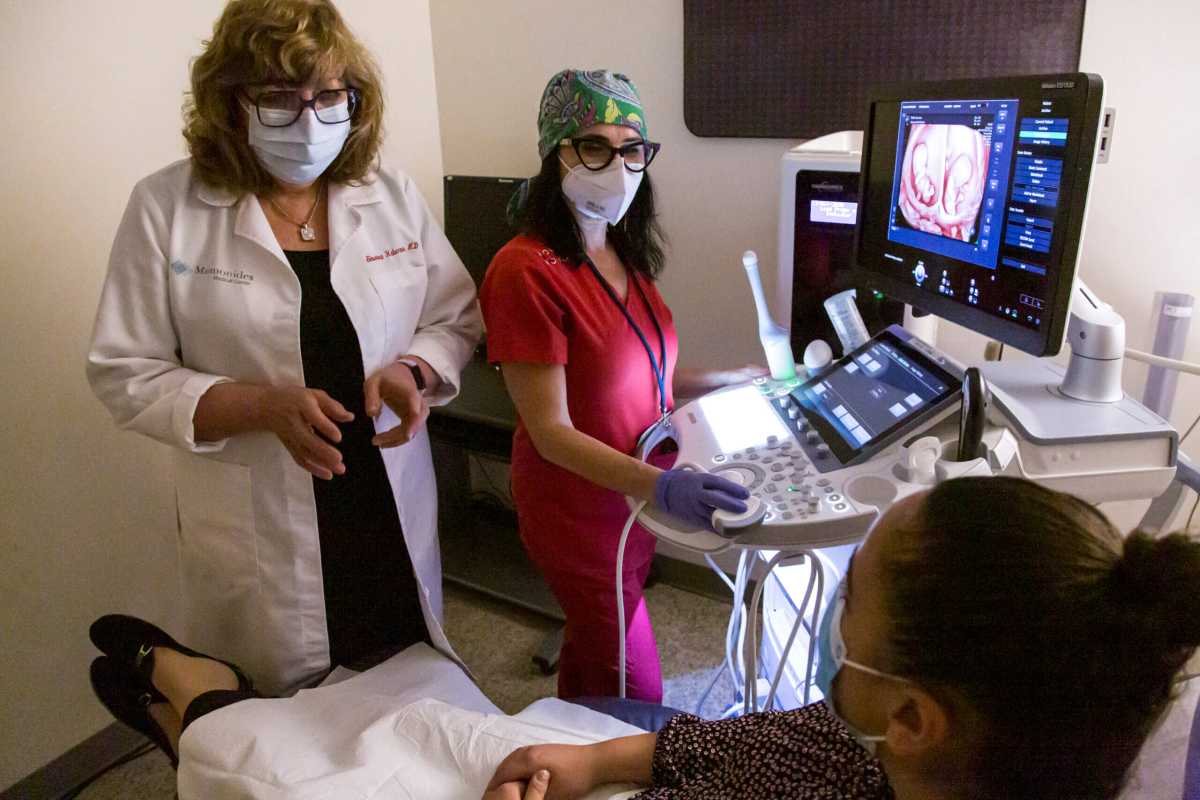Maimonides Medical Center, Brooklyn’s largest hospital, is working to transform women’s healthcare across the borough to bring the best patient outcomes — particularly with maternal health, heart disease and other ailments that have historically been overlooked in female patients.
With the establishment of Maimonides Women’s Health Institute, led by the Chair of Obstetrics and Gynecology, Dr. Scott Chudnoff, patients now have access to more hands-on care in Brooklyn than ever before.
Dr. Chudnoff and his team have revolutionized their approach to medicine, which emphasizes the effectiveness of treating patients with holistic aspects, in tandem with traditional medical practices and ensuring that patients receive comprehensive healthcare throughout their lives.
“When I think of holistic care, I think of taking care of the whole person,” Dr. Chudnoff told Brooklyn Paper. “A lot of the time, in healthcare, we look at things from a disease basis rather than as an individual and a person.”
The typical, non-holistic approach, Dr. Chudnoff said, doesn’t serve the patient to the fullest extent necessary because it often neglects to consider that the treatment options usually given to patients isn’t always feasible, and ignores the importance of considering how there is no “one size fits all” approach to treating illness.
“Say you have a woman with urinary incontinence,” Dr. Chudnoff explained. “You tell the woman that to begin with, the first thing [she] should do is every hour on the hour she should use the bathroom. But what if she’s a teacher? What if she’s a nurse? We may be giving them the right treatment, but it doesn’t matter if they never use it.”
Maimonides’ care, when incorporated into the traditional practice of medicine, has also improved the care of birthing patients and newborns.
The Women’s Health Institute has implemented practices like new medical teams dedicated to fighting a “full blown war” against maternal morbidity.
“We’ve created a task force around a variety of different issues that ultimately…created programs and care bundles and packages to address the most common aspects of maternal morbidity and mortality,” said Dr. Chudnoff. “For example we have a very extensive hemorrhage program which is one of the most common reasons for maternal mortality.”
In addition to ensuring that birthing patients receive the most comprehensive care during and immediately following delivery, Dr. Chudnoff’s team and the Maimonides Women’s Health Institute have implemented programs to aid patients experiencing potential mental health care struggles following birth.
“In the most recent maternal mortality review from the state, psychiatric disorders ranked in the top three sources of mortality, but historically [healthcare professionals] have really paid very little attention to this,” Dr. Chudnoff said.
In response to this crisis, Maimonides made the critical decision to serve patients experiencing postpartum mental health crises by offering services through the Women’s Health Institute by offering interdisciplinary services to address any and all health issues that patients may be experiencing.
While the Maimonides Women’s Health Institute aims to care for all their patients in an exhaustive and comprehensive manner, the center is also trying to work in collaboration with local community-based organizations that reflect the demographic of the patients treated at Maimonides to further improve care.
“If we’re going to take care of the women as a holistic view, we need to look at the whole social aspect and where the support systems are and there’s no better partners for us than the community-based organizations to be able to give us that support, to be able to help with education for the patients, to be able to check in with the patients” said Dr. Chudnoff.
According to Dr. Chudnoff, Maimonides is also making additional efforts to ensure that Black and Brown patients, who have historically disproportionately been neglected in healthcare, feel comfortable and safe when being treated by implementing a new Diversity Equity and Inclusion committee as well as employing more diverse physicians and nurses.
“You don’t need to be the same race as somebody to take care of them or the same religion or the same nationality, but there is certainly a level of comfort when you’re dealing with someone who looks like you,” Dr. Chudnoff said. “I believe we are elevating the care for women of various different demographics.”
To learn more about Maimonides Medical Center and their work improving maternal health, visit www.maimo.org























